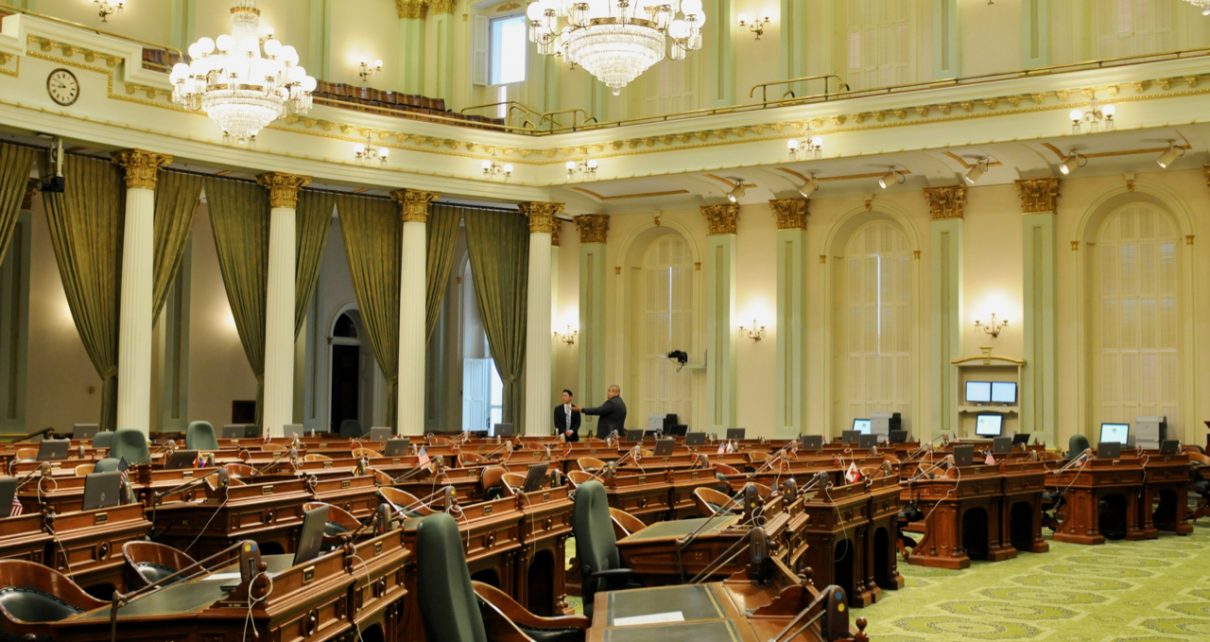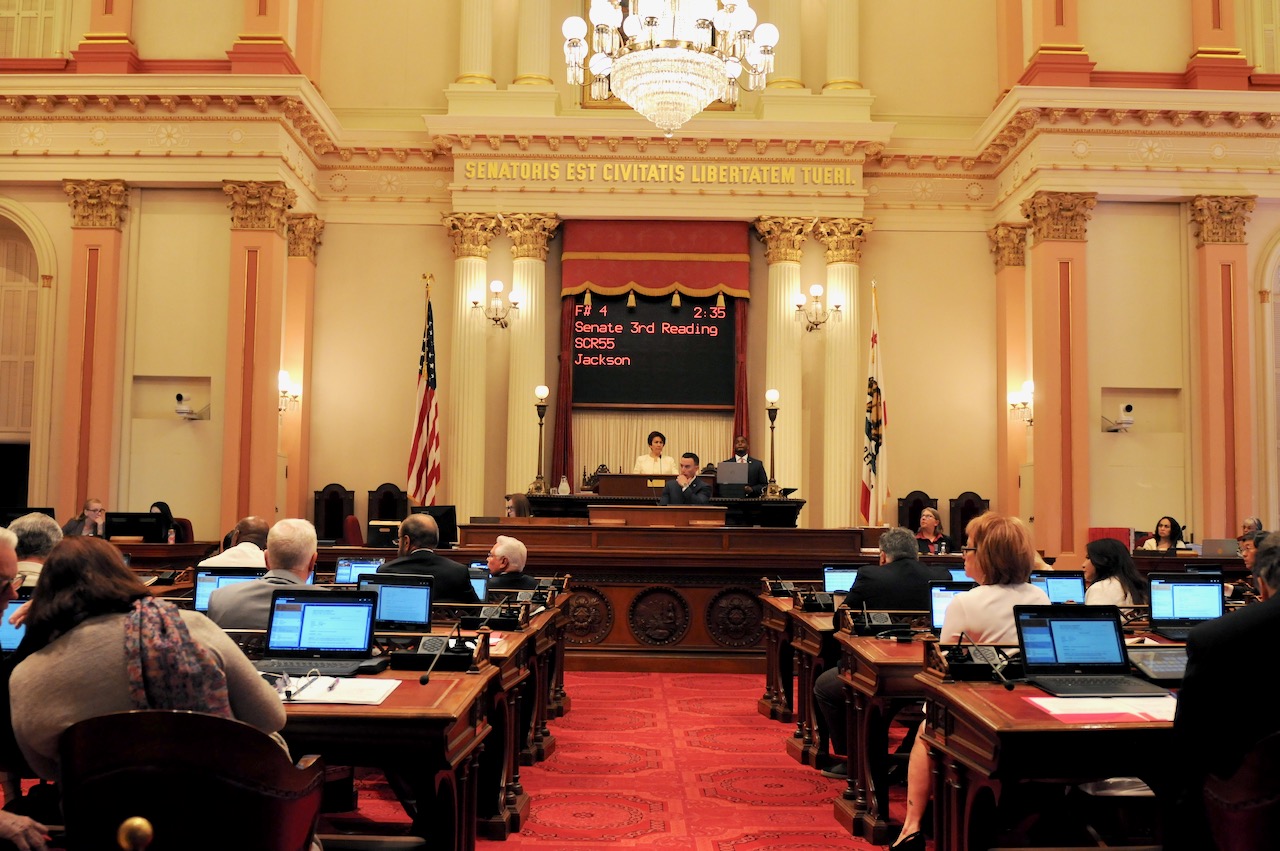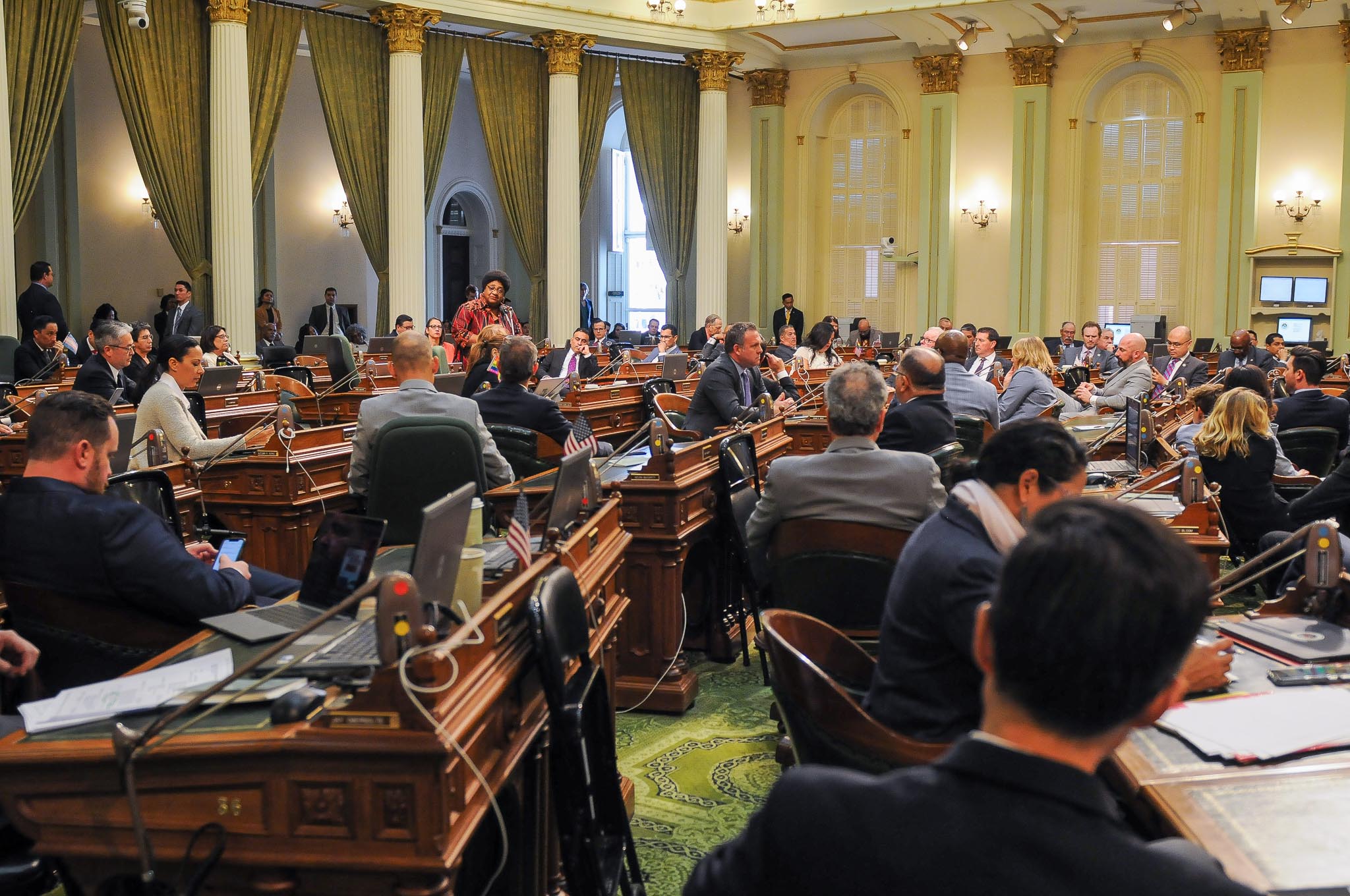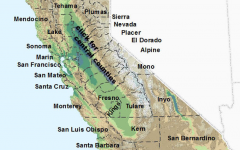
CA Assembly Chambers. (photo: Kevin Sanders for California Globe)
A Few Unique Aspects of California Legislation
Capitol observers should be aware when working on bills in the State Legislature
By Chris Micheli, November 8, 2022 12:48 pm
For those involved in the California legislative process, they may be familiar with several unique provisions of California legislation. Some of the main ones to be familiar with include the following:
Urgency Clause Statements – When an urgency clause is in a bill, there must be a statement explaining the cause of the urgency. Urgency clauses are allowed in California so that bills with them take effect immediately. While these statements explaining the urgent need for the bill are generally not challenged by the courts, a legitimate statement must be included in the bill to justify the need.
Statutes Applying to Charter Cities – When a bill proposes to apply to all cities – both charter and general law ones – there must be a stated finding in the bill that the changes proposed by this bill address a matter of statewide concern, rather than a municipal affair and, therefore, apply to all cities, including charter cities. A charter city is exempt from legislative control except for matters of statewide concern.
Single Subject Rule – All parts of a bill must be reasonably germane to a common theme or subject pursuant to the California Constitution in Article IV. This is commonly known as the single subject rule.
Special Statutes Must Be Justified – The Legislature may not enact a special statute if a general statute can be made applicable pursuant to the California Constitution in Article IV, Section 16.
UC System Exemption – The University of California is generally exempt from legislative control pursuant to the California Constitution in Article IX.
Tax Increases – If a bill would impose a tax or increase a tax, the must be passed by a 2/3 vote of both houses, pursuant to the California Constitution in Article XIIIA.
Reimbursement for Local Mandates – If a law would require a city or county to do a new program, or perform a higher level of service on an existing program, it may be a state mandated local program and require reimbursement pursuant to the California Constitution in Article VI.
The above list is not exhaustive, but it highlights some unique provisions of California legislation that Capitol observers should be aware of when working on bills in the State Legislature.
- Port Facility Construction in California - August 11, 2025
- Division of Real Property in California - August 10, 2025
- Emergency Protective Orders for Preventing Domestic Violence - August 9, 2025







